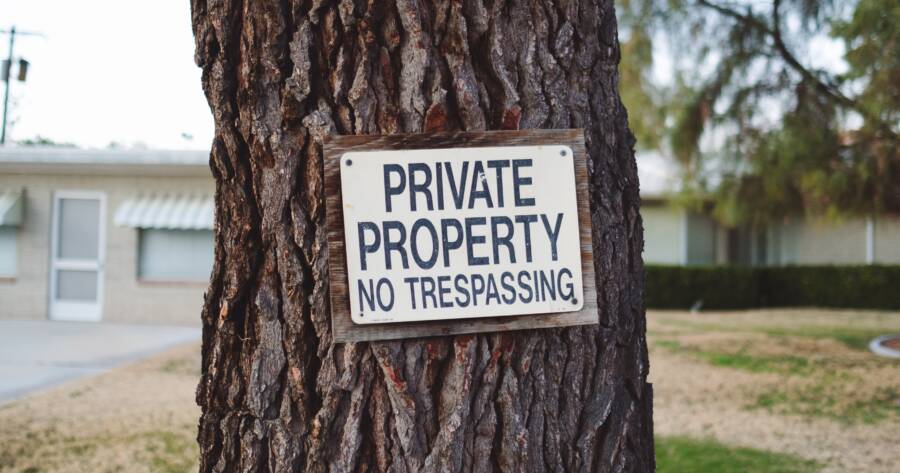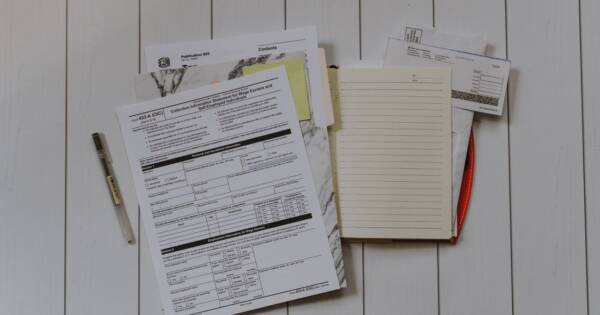Trespassing is one of those legal terms that most people think they understand, but which has a lot of hidden complexity. In a society that values private ownership of buildings, land and other spaces where people may travel, it is important to know what trespassing is, how it works and what your rights are if you are accused of it. Understand what you need to know as a property owner, business manager and private citizen about this complex law.
Trespassing Is a Criminal and Civil Offense
Trespassing is both a crime and a civil tort. This means that you can be charged by the government with an illegal act if you do it, as well as sued by the property owner in civil court. The laws that draw the exact boundaries around what is and is not trespassing vary from state to state, but the distinction between civil and criminal trespass is common in every state.
Criminal Trespass
In most jurisdictions, the crime of trespassing is related to burglary, but it is almost always treated as a less serious criminal offense. Most trespassing charges are filed as misdemeanors, or even infractions, while burglary is often charged as a felony.
There are multiple elements to a trespassing charge. In most places, a person may be guilty of the crime when they knowingly or willfully enter property that belongs to another person or entity, and the act is done against the will of the legitimate property owner.
As with any crime, all elements must be provable beyond reasonable doubt in order to obtain a conviction. If any single element is missing, the conduct in question is probably not trespassing.
Knowledge of the Act
If, for example, a group of hikers gets lost in the woods and strays onto private land, it can reasonably be argued that they did not intend to enter the property. This eliminates the willful element of the charge and limits or prevents criminal liability.
Another example of non-willful conduct could be a traffic accident, where a driver unintentionally leaves the road and rolls onto private grazing land adjacent to the highway. Because entry to the property was unintentional, this does not constitute deliberate violation of a landowner’s property rights.
Property Ownership
The property involved in a trespassing charge must be owned by a person, company, government or other legal entity. Trespassing is, at its heart, a violation of property rights, and so it can only be committed against a property owner. Walking on the public part of the beach is thus not trespassing, though walking up the beach to a homeowner’s property line may be. Flying a small plane over a family farm is not trespassing, since the landowner does not control the air above the property, though parachuting onto their vegetable garden may be trespassing (and may even result in property damage). Entering a vehicle could, in some cases, be treated as trespassing, even if the car in question is located on public land or has been abandoned.
Consent and the Lack Thereof
Finally, in order to commit the crime of trespass, a person must occupy the space against the wishes of the rightful owner. You are not, for instance, committing trespass by visiting a friend’s house after being invited over. In that case, you have the explicit permission of the owner to enter a property for a social call. It is also generally not considered trespassing to visit public spaces that are open to the public, such as shopping centers, government buildings and public parks, since permission to enter these spaces is implicitly given to the general public.
Consent to occupy a property may be revoked, however, either in general or specifically for one person. A private landowner, for example, may post “No Trespassing” signs on trees or fence posts around a property. This serves as a public notice that the general public is not welcome to enter. It is assumed in most areas that entry to a private dwelling, farm complex, factory building or other place that isn’t open to the public must be at the invitation of the owner.
Consent to occupy a place may also be withdrawn if the building closes or the public park has a curfew. You may also be personally barred from entering an otherwise public space. This can be as simple as the property owner or manager telling you to leave, which may generally be for any reason, or when a court issues an order for you to stay away from a specified location, often as part of a bond or probation condition.
Civil Trespassing
Trespassing can also be handled in civil court, as a harm that you have done to a property owner. Monetary damages for this are rare in most states, since any costly damage done – such as cutting down trees on the property or breaking equipment – can be sued for on their own, regardless of where the act was committed. In cases where the only harm was the physical occupation of property, monetary awards are usually nominal.
Another form of relief a court can grant for trespassing is a restraining order. This is an order from the court that a person not enter a specified property. This is a common outcome of a civil trespassing complaint. Violation of this order is likely to be a crime, and it may result in contempt charges, in addition to trespassing.
The laws that describe trespassing use slightly different wording in every state. Though the act has certain elements in common, regardless of where and how it is committed, the law has a generally recognized way of recognizing and dealing with trespassing. If you have questions about trespassing law, it is a good idea to consult with a practicing attorney in your state who knows the laws relating to property ownership and violations, or you can obtain advice from a litigator who has experience with civil trespassing cases.






